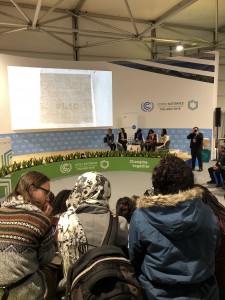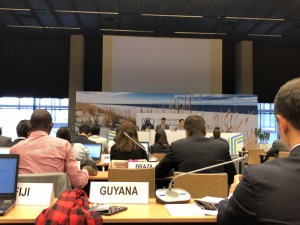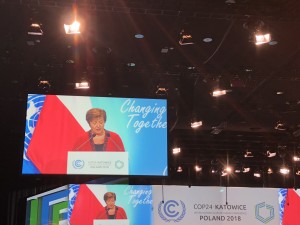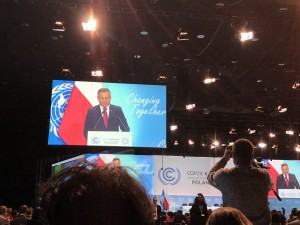Today was intergenerational youth day at the conference! While themed days don’t affect the actual negotiation discussions too much, they do make it so that more of the side events at the conference center on this topic.
One event I went to for intergenerational youth day was a celebration for a new Guinness World Record of 100,000 climate change postcards put on a Swiss glacier. The celebration took the form of a panel in which NGO youth leaders from Uganda, India, and Switzerland discussed how they encouraged schools and youth organizations to write postcards against climate change, which were eventually put on a receding Swiss glacier to advocate that youth deserve a future too.
Personally, I felt a little skeptical about the initiative. While I absolutely think it’s inspirational that youth are speaking out against climate change, I questioned if there were too many negative impacts of putting postcards on the glacier. I wonder if school children would have felt as engaged if the postcards were sent to policymakers instead. I also found it a little sad when Switzerland said they had a hard time getting schools and youth organizations to join onto the initiative, as this is the reason they reached out to Uganda, India, and other countries to get more postcards in the first place. I wonder if the engagement of young children in the climate change movement may be lacking. Perhaps we could be doing more in schools to teach children the urgency of climate change. While this may seem a little far from the goal of the actual negotiations in implementing a rule book for the Paris agreement, it has potential to have similar importance in the future.
I think this is the first side event at the conference I attended where I was left feeling a little disheartened, or a little unsure about the impact of a supposed climate action. I was also left feeling like a lot more needs to be done in educating young children about the importance of climate change. I’d actually be really curious to hear others thoughts on this issue, if anyone has any reactions.



